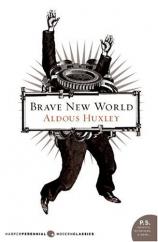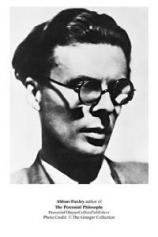Reading Group Guide
Discussion Questions
Brave New World

1. Few of Huxley's predictions have proven to be perfectly accurate, yet many aspects of the Utopia of Brave New World feel uncomfortably like our world. Talk about the book as a prophetic vision of the future. Which aspects of the book did you find most disturbing? Which hit closest to home? Which seem the most far-fetched?
2. When Brave New World was first published in 1932, the world was plunged in depression, fascism was on the rise in Western Europe, and Marxism appealed to increasing numbers of intellectuals in Europe and America. Place the book in the context of its historical moment. Which parts transcend its time and place?
3. The two greatest obscenities in the society of Brave New World are birth and mother. Why?
4. Toward the end of the book, the Controller Mustapha Mond sums up the benefits of living in the "brave new world" Utopia: "The world's stable now. People are happy; they get what they want, and they never want what they can't get." It sounds like perfection, and yet the world Mond describes is deeply, intentionally horrifying. Why? What exactly is so bad about this society of the future? Is there anything good about it, anything we could learn from and try to adapt to our own uses?
5. As dehumanizing and oppressive as the brave new world Utopia is, the alternative in the "savage reserve" is in many ways worse - dirty, violent, unhealthy, cruel, uncomfortable. What point is Huxley making about human nature and the nature of human communities? Is his vision totally negative - or does the book hold out some shred of hope, some alternative mode that fosters both freedom and community?
6. One of the most striking - and comic - aspects of Huxley's Utopia is the way our sexual mores and assumptions have been turned on their head: monogamy is bad, passion is deviation, casual, meaningless sex is the socially approved norm. What is Huxley getting at here? Is there any expression of human sexuality that he finds acceptable? Is sex at the heart of the "problem" in his view of human nature?
7. Talk about the morality of the book. Is it a Christian morality? Socialist? Anarchist?
8. In many ways, the main characters of the book are cartoon figures - Helmholtz Watson the alienated superman, Bernard Marx the cowardly, hypocritical intellectual, Mustapha Mond the cynical all-knowing leader, John the doomed idealistic. Discuss the book as an allegory and elaborate on what each character stands for.
9. When John first starts reading Shakespeare, he discovers that the words make his emotions "more real" - they even make other people more real. Talk about the power of language in the book, the power of the word to influence thought and behavior. Why did Huxley choose Shakespeare as the medium of John's intellectual awakening?
10. Huxley wrote many other books, yet this is his most popular and most enduring. What is it about this book that has captured our imaginations for so long? Are there aspects of it that seem dated?
11. If you read the book earlier in life - say in high school or college - compare the experience of reading it again later on. Does it hold up to a second reading?
12. Talk about Huxley's use of narrator. Does the fact that Huxley's vision was impaired for part of his life have any bearing on the way he narrates the story and sets the scenes?
13. Could anything like Brave New World really happen? Has it happened in some form that we don't fully recognize?
Brave New World
- Publication Date: October 17, 2006
- Paperback: 288 pages
- Publisher: Harper Perennial Modern Classics
- ISBN-10: 0060850523
- ISBN-13: 9780060850524








